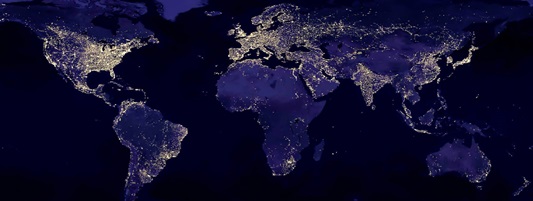Contact us
Send a messageOverview
The purpose of the Collaborative Framework on the Geopolitics of Energy Transformation (CF-GET) is to achieve a deeper understanding of the geopolitical consequences of the ongoing energy transitions and a large-scale shift to renewable energy. CF-GET works to provide a deeper understanding of the issues of common interest to Members. Building on the work of the Global Commission on the Geopolitics of Energy Transformation, the CF-GET consolidates the latest expert knowledge and facilitates dialogue, highlighting policy options and considerations to support governments in preparing for the global energy system of the future.
The Collaborative Framework works to:
- Lead global discourse on the geopolitics of energy transformation and the diverse geopolitical issues where energy transitions play or should play a role;
- Provide a global platform for enhanced international cooperation on the geopolitics of energy transformation;
- Create a community of institutions, experts, and other stakeholders to cultivate knowledge and new insights on the geopolitics of energy transformation;
- Undertake comprehensive reviews and analyses of the critical geopolitical shifts stemming from a renewables-based energy transition; and
- Disseminate knowledge and policy options and recommendations.
The work of the CF-GET commenced in 2020 with two workstreams proposed and agreed upon by Members, with the active contribution of experts and a broad range of stakeholders. The two initial workstreams were (i) the geopolitics of hydrogen economy, and (ii) the climate-energy nexus. As a deliverable of the hydrogen workstream, IRENA published the Geopolitics of the Energy Transformation: The Hydrogen Factor report on 15 January, 2022. As requested by Members, the 2019 Global Commission report will serve as a baseline framework to inform further analyses.
Related Events
More eventsModalities
- Participation
- Meetings of the Collaborative Framework are open to all IRENA Members and States in Accession. Representatives of the private sector, associations, research communities, IGOs and NGOs, among others, involved in this thematic area of work may be also invited to participate in select meetings.
- Co-facilitators
- Two Co-Facilitators are selected from the membership to help coordinate deliberations of the Collaborative Framework. Germany and the UAE are presently co-facilitators for CF-GET.
-
Workstreams
- The Collaborative Framework may include workstreams, where participating Members are called upon to support in-depth discussions on specific topics of interest.
-
Reporting
- The Co-Facilitators normally report to one IRENA Council per year or more as may be necessary, with a view to informing the membership on advances made in the Collaborative Framework’s workplan. Such reports may focus on experience and best practices identified, recommendations on specific thematic areas of work, areas of research, technical reports, etc.
-
High-level meetings
- Ministerial/High-level meetings of the Collaborative Framework may be held, as necessary, in the context of the work of the Assembly, or annually preceding or post Assembly, as mandated by and in the context of the work of the Assembly.




